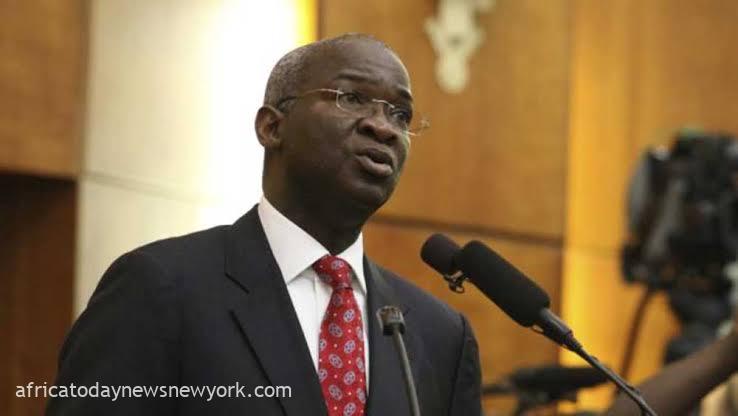In a recent statement, Mr. Babatunde Fashola, former Minister of Power, Works, and Housing, stressing the urgent need for a thorough reevaluation of tenancy laws across states.
He advocates for a shift towards compelling landlords to adopt a monthly rent collection system.
Fashola made the call while speaking during the launch of his book titled: “Nigerian Public Discourse: The Interplay of Empirical Evidence and Hyperbole”, in Lagos.
In his observations, he drew attention to the strain on tenants caused by the prevalent practice of demanding advance rents for extended periods, reaching up to three years or beyond. He stressed the consequence, highlighting the increasing number of unoccupied houses due to this method of rent collection.
‘That is not the only reason, but if you do not understand how dramatic and painful that three, four or five years rent has become to our nation, we have not consciously done anything to it.’
‘Can we bring it down from three years to one year? Can we hopefully bring it down to six months? Can we let it coincide with when people get paid? At the end of the month instead of in advance?,’ he said.
Fashola, deeming data as the most crucial global currency not subject to central bank printing, passionately called for the integration of precise data in planning processes to enhance the overall strategic development within the nation.
Read also: Lagos-Badagry Expressway: FG Owing Contractor – Fashola
‘So, accurate data will help us determine how many we are, what amount of water we need, what quantity of food, data makes this very important, accurate data therefore will be beneficial for us.’
‘Life without shortage of basic needs, like food, like water, like shelter and energy will be a good life, and data is critical to this objective,’ he said.
Mr Opeyemi Agbaje, author and academic, who reviewed the book, said that Fashola wrote a thoughtful and analytical book, which sought to destroy hyperbolism, fallacies and myths.
Agbaje explained that the book had 16 chapters delving on issues of corruption, poverty, the Nigerian constitution, minimum wage and governance, among others.
He urged Nigerians, especially the media, to seek correct facts, statistics and data, as hyperbole could thrive if the people were undereducated with the right facts.
According to him, the author agrees that there is misconstrued information out in the public, therefore, the book will help put out the true picture of issues.
Africa Today News, New York, reports that a panel of experts discussed the importance of data to development at the book launch.
The panelists found common ground in endorsing data as the essential basis for shaping policies and decisions. Their shared perspective envisioned these data-driven measures as drivers of meaningful changes capable of positively influencing the lives of the people.
The panelists included Tolu Ogunlesi, a former Special Assistant to President Muhammadu Buhari on Digital/New Media; Mrs. Toyosi Akerele-Ogunsiji, a Social Entrepreneur; and Adesuwa Giwa-Osagie, a lawyer and historian.
Notable attendees at the book presentation comprised Dame Abimbola Fashola, the author’s wife; representatives from the Federal Executive Council; Dr. Obafemi Hamzat, the Deputy Governor of Lagos; and Mrs. Adejoke Orelope-Adefulire, former Senior Special Assistant to the President of Nigeria on Sustainable Development Goals.
Others were a former Commissioner For Justice and Attorney General of Lagos, Mr Moyosore Onigbanjo;a former Chairman, First Bank of Nigeria, Mrs Ibukun Awosika; Traditional rulers, Lagos White cap chiefs, friends and families; among others.

